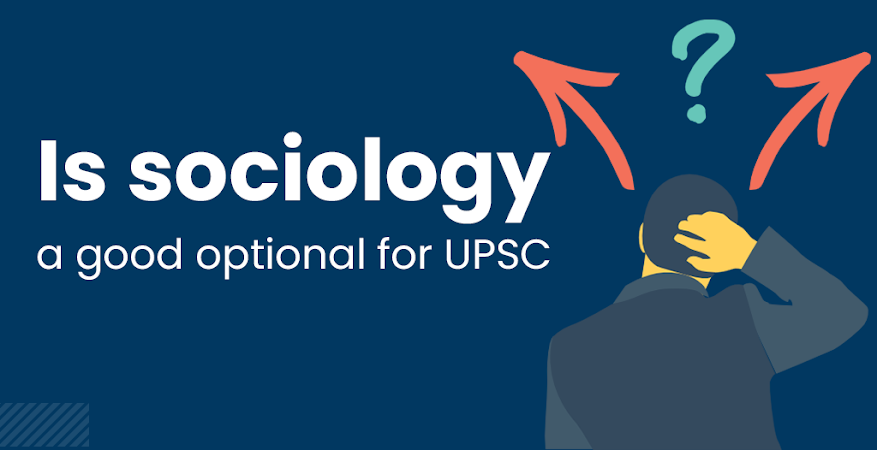Choosing the right sociology coaching program is crucial for aspirants preparing for competitive exams like the UPSC, where sociology is a popular optional subject. The right coaching can significantly enhance your understanding of the subject, improve answer-writing skills, and increase your chances of success. In this article, we’ll discuss key factors to consider when selecting the best sociology optional coaching to meet your preparation needs.
1. Research Faculty Expertise
One of the most important factors when choosing a sociology optional coaching is the quality of faculty. A good sociology teacher can simplify complex sociological theories and thinkers, making the subject easier to grasp. Look for teachers with a strong academic background, teaching experience, and a track record of guiding students through the exam process. Faculty who are experienced in sociology as an optional subject are better equipped to provide insights into the exam pattern and focus areas.
2. Track Record and Success Rate
Examine the coaching institute’s success rate in the sociology optional subject. Institutes that consistently produce toppers or candidates who perform well in sociology are more likely to provide quality education. You can ask about the number of students who have cleared the exam with sociology as their optional subject and seek out testimonials from former students. The success stories can be a good indicator of the institute’s efficacy.
3. Course Structure and Study Material
The quality of study material is another critical factor to evaluate. The coaching program should offer well-structured notes and resources that are aligned with the current syllabus and exam pattern. Look for updated materials, including summaries of important sociologists, relevant case studies, model answers, and previous years' question papers. Some coaching institutes also provide digital resources such as video lectures and online quizzes, which can be valuable for self-paced learning.
4. Batch Size and Personalized Attention
Small batch sizes are essential for receiving personalized attention from faculty. In a crowded classroom, it can be challenging to get individual doubts cleared. Therefore, choose a sociology optional coaching that offers manageable batch sizes, ensuring that each student has the opportunity to interact with the teacher and participate actively in discussions. Personalized feedback, especially on answer writing, is crucial for improving your scores.
5. Answer Writing Practice and Evaluation
Success in the sociology optional subject is heavily dependent on effective answer writing. A coaching program that emphasizes regular answer writing practice is more beneficial for your preparation. Look for institutes that offer mock tests, timed writing sessions, and detailed feedback on your answers. Some programs also provide model answers and workshops focused on improving writing techniques, which can help in scoring higher marks.
6. Flexibility and Online Coaching Options
In today’s digital world, the availability of online sociology coaching is an added advantage. If you're working or located in a different city, online coaching can be a convenient alternative to attending classes in person. Many top coaching institutes now offer live online classes, recorded sessions, and e-learning platforms for sociology optional coaching. Ensure that the online platform is user-friendly and offers interactive features such as live doubt-clearing sessions.
7. Fee Structure and Value for Money
Cost is a significant factor when choosing sociology optional coaching. Fees for coaching programs vary widely depending on the reputation of the institute, faculty expertise, and the resources provided. While it’s important to invest in quality coaching, you should also ensure that the program offers value for money. Look for flexible payment options, discounts, or scholarships, especially if you are on a budget.
8. Location and Accessibility
If you prefer attending in-person classes, the location of the coaching center matters. Opt for a center that is easily accessible to avoid long travel times, which can be tiring and unproductive. Some institutes have branches in multiple cities, so consider the one closest to you or the one with the best faculty.
9. Demo Classes and Trial Period
Many coaching institutes offer demo classes or a trial period before you commit to the full program. This can be an excellent opportunity to assess the teaching style, interaction level, and the general atmosphere of the class. Take advantage of these trial periods to decide whether the program suits your learning style and preparation needs.
10. Peer Interaction and Community Support
Joining a sociology coaching program is not just about learning from teachers but also gaining from peer interaction. A good coaching institute fosters a collaborative environment where students can engage in group discussions, share notes, and motivate each other. Institutes with active alumni networks or online student forums can provide additional support and guidance during your preparation.
11. Focus on Current Affairs Integration
Sociology, as a subject, is closely linked to contemporary social issues and current affairs. The right sociology coaching will integrate current events and case studies into their curriculum to ensure that students can draw connections between sociological theories and real-world examples. This approach not only enhances understanding but also makes answers more comprehensive and insightful.
12. Post-Course Support
Some coaching institutes provide post-course support, including revision classes, access to updated study material, and guidance on revision strategy closer to the exam. Institutes offering mentorship even after the course ends can be invaluable in the final months of preparation.
Conclusion
Selecting the right sociology optional coaching requires careful consideration of several factors, including faculty expertise, course content, batch size, answer writing practice, and value for money. By taking the time to evaluate different coaching programs based on your learning style and needs, you can ensure that you choose the best institute to help you excel in sociology for competitive exams like the UPSC. With the right guidance and effort, sociology can be a high-scoring and manageable optional subject.

Comments
Post a Comment